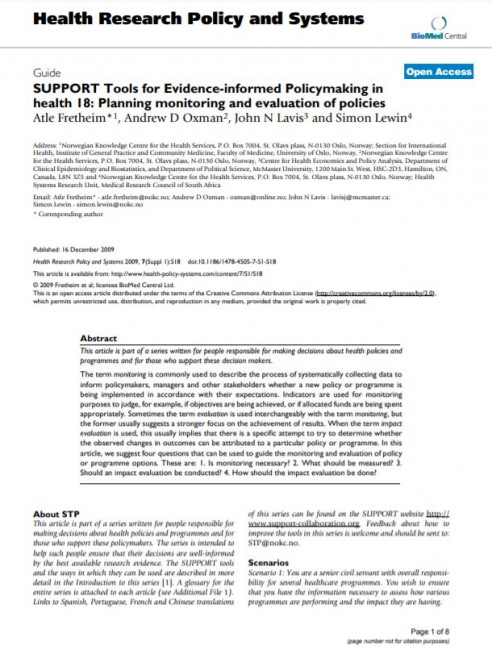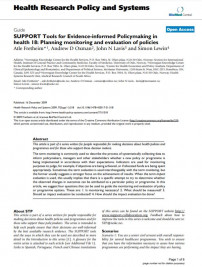This article is part of a series written for people responsible for making decisions about health policies and programmes and for those who support these decision makers.
The term monitoring is commonly used to describe the process of systematically collecting data to inform policymakers, managers and other stakeholders whether a new policy or programme is being implemented in accordance with their expectations. Indicators are used for monitoring purposes to judge, for example, if objectives are being achieved, or if allocated funds are being spent appropriately. Sometimes the term evaluation is used interchangeably with the term monitoring, but the former usually suggests a stronger focus on the achievement of results. When the term impact evaluation is used, this usually implies that there is a specific attempt to try to determine whether the observed changes in outcomes can be attributed to a particular policy or programme. In this article, four questions that can be used to guide the monitoring and evaluation of policy or programme options are sugggested. These are: 1. Is monitoring necessary? 2. What should be measured? 3. Should an impact evaluation be conducted? 4. How should the impact evaluation be done?



